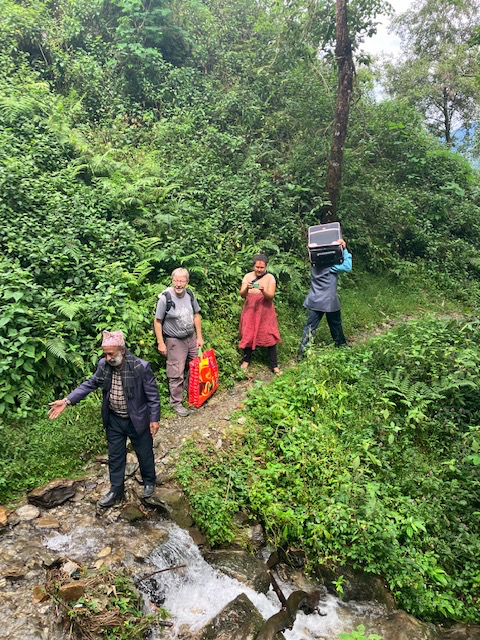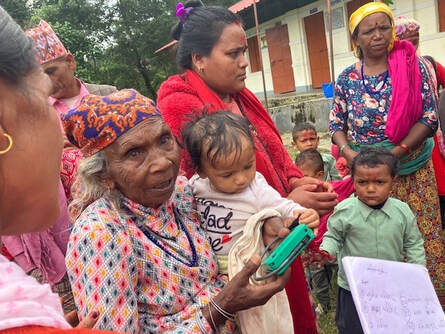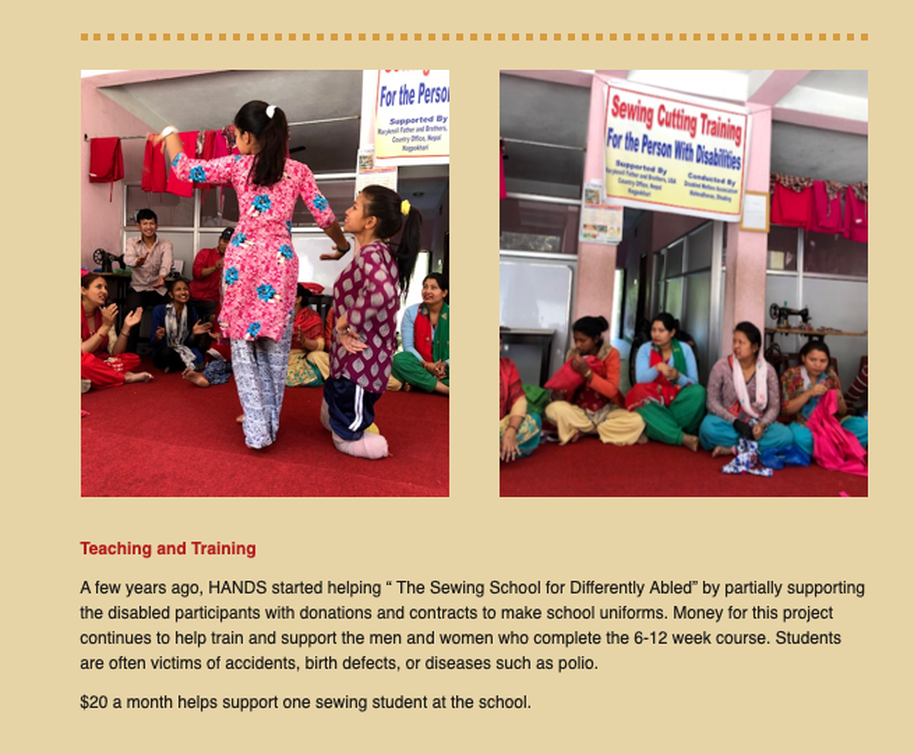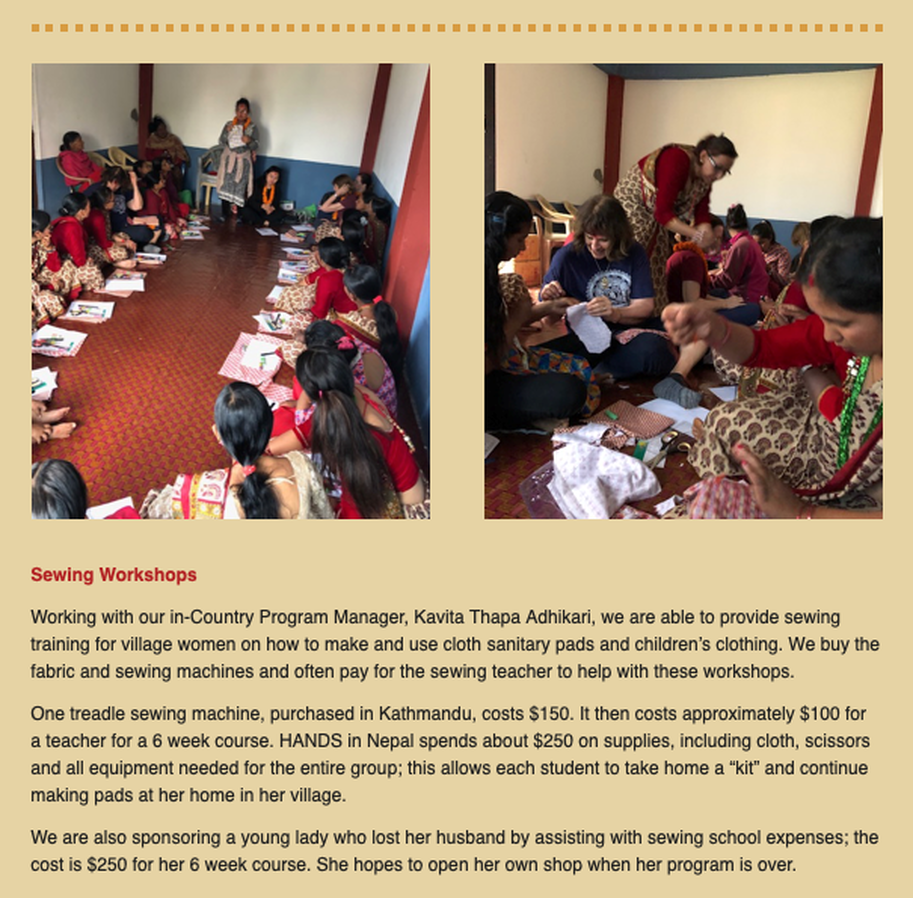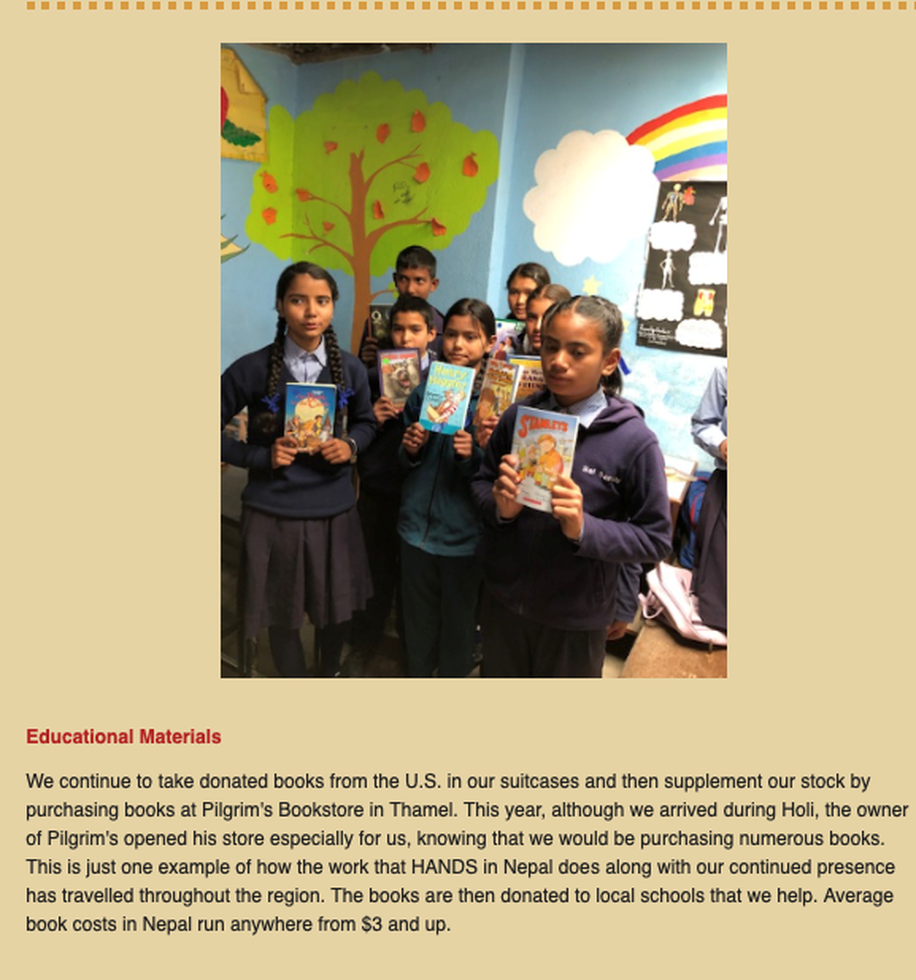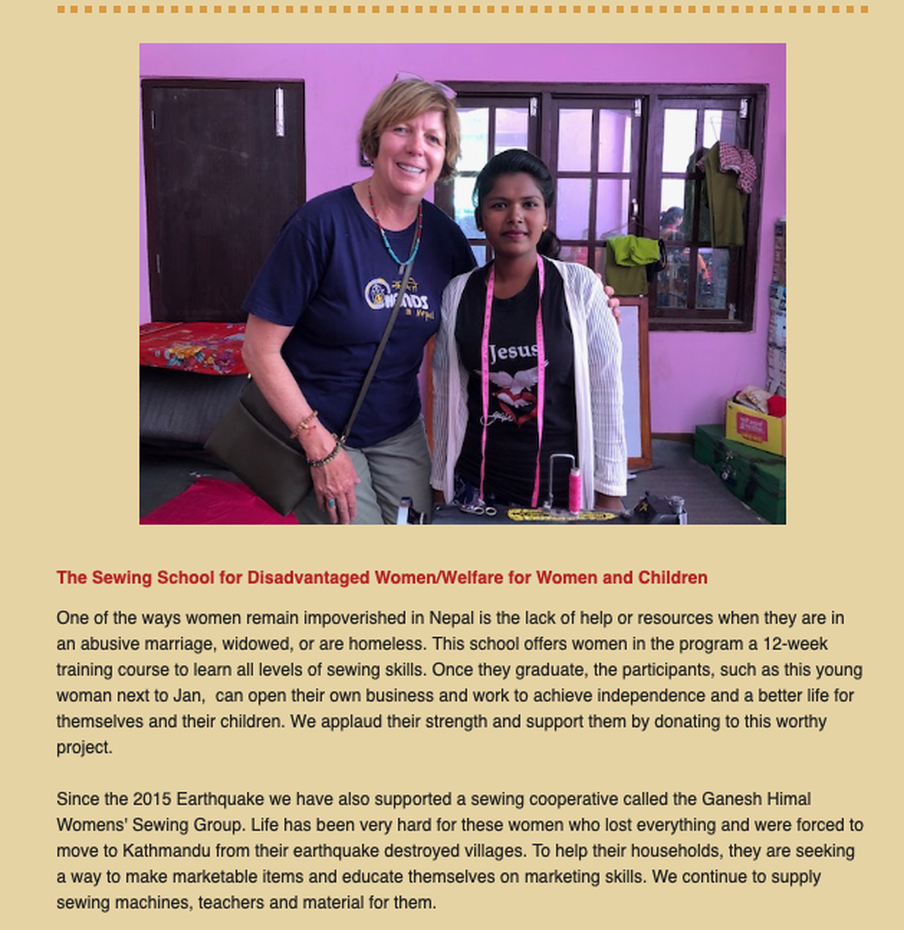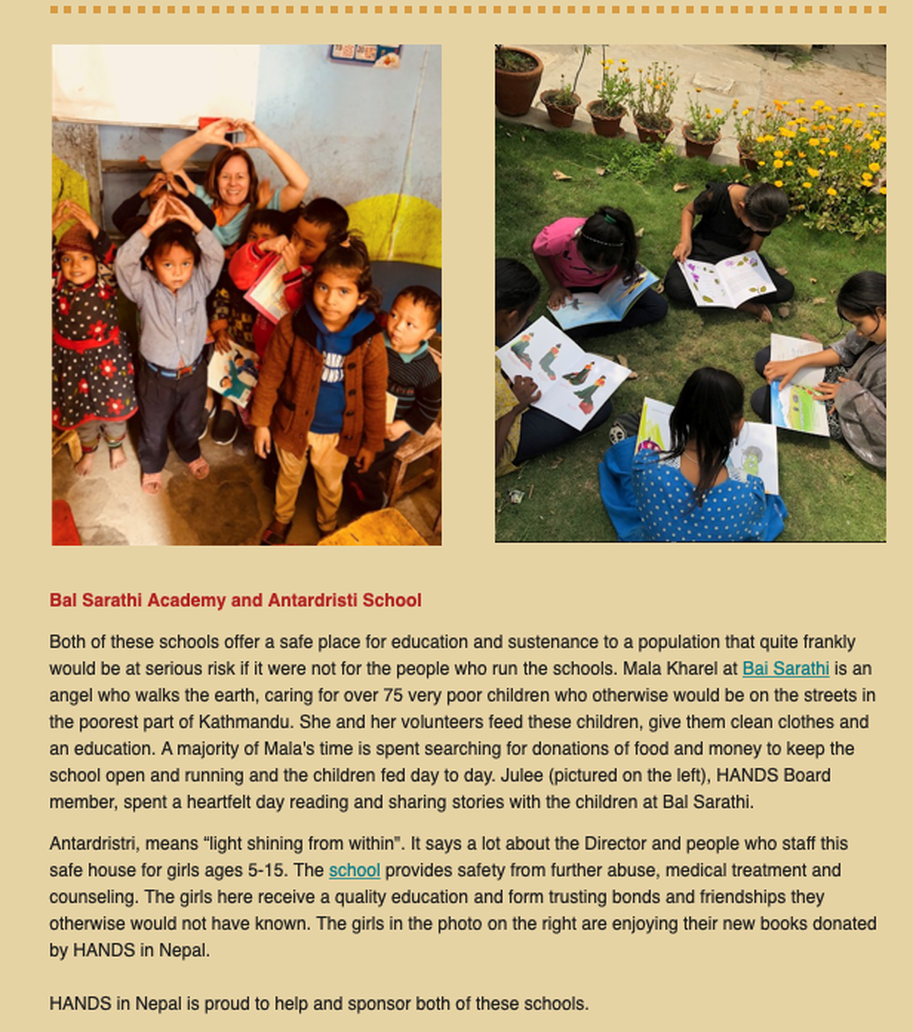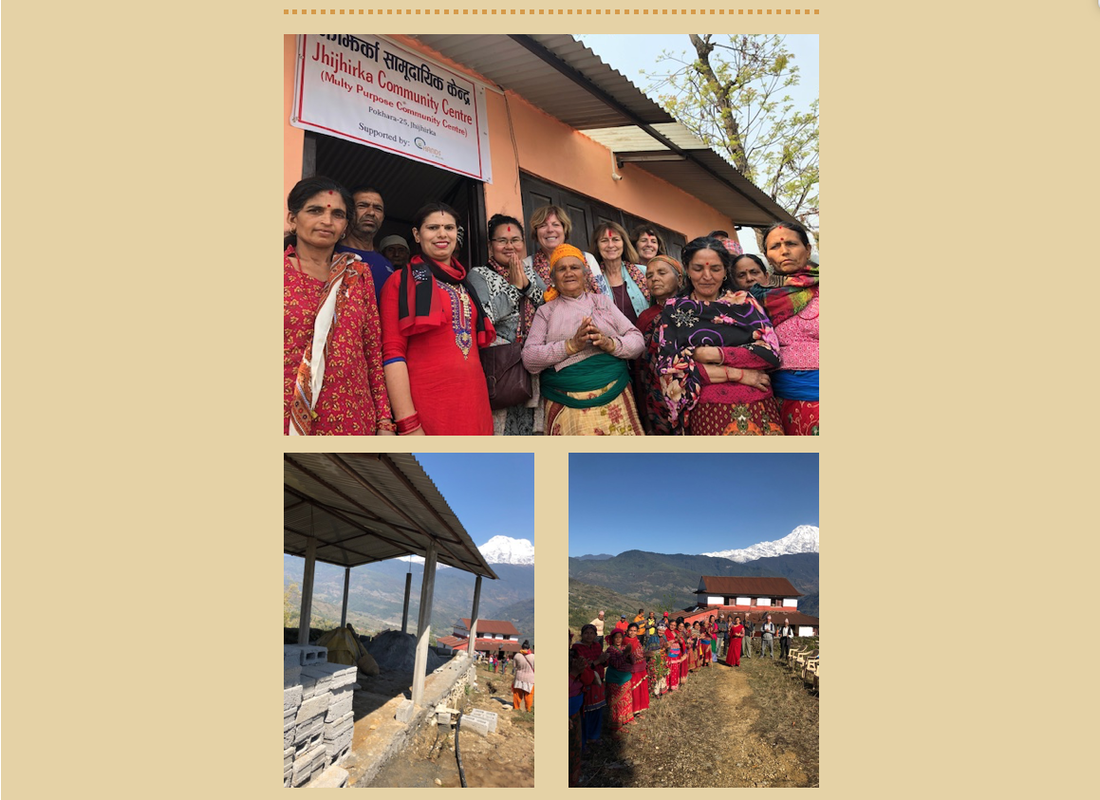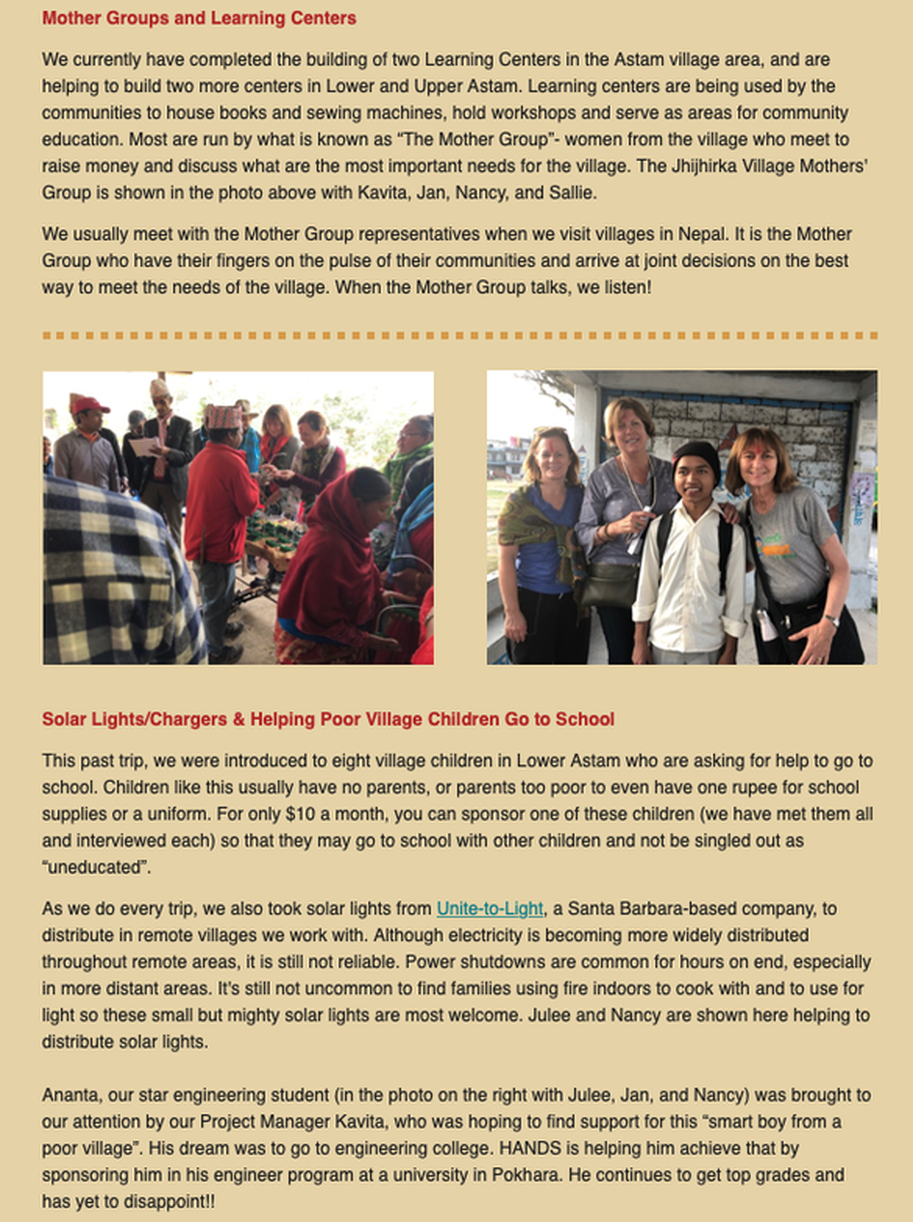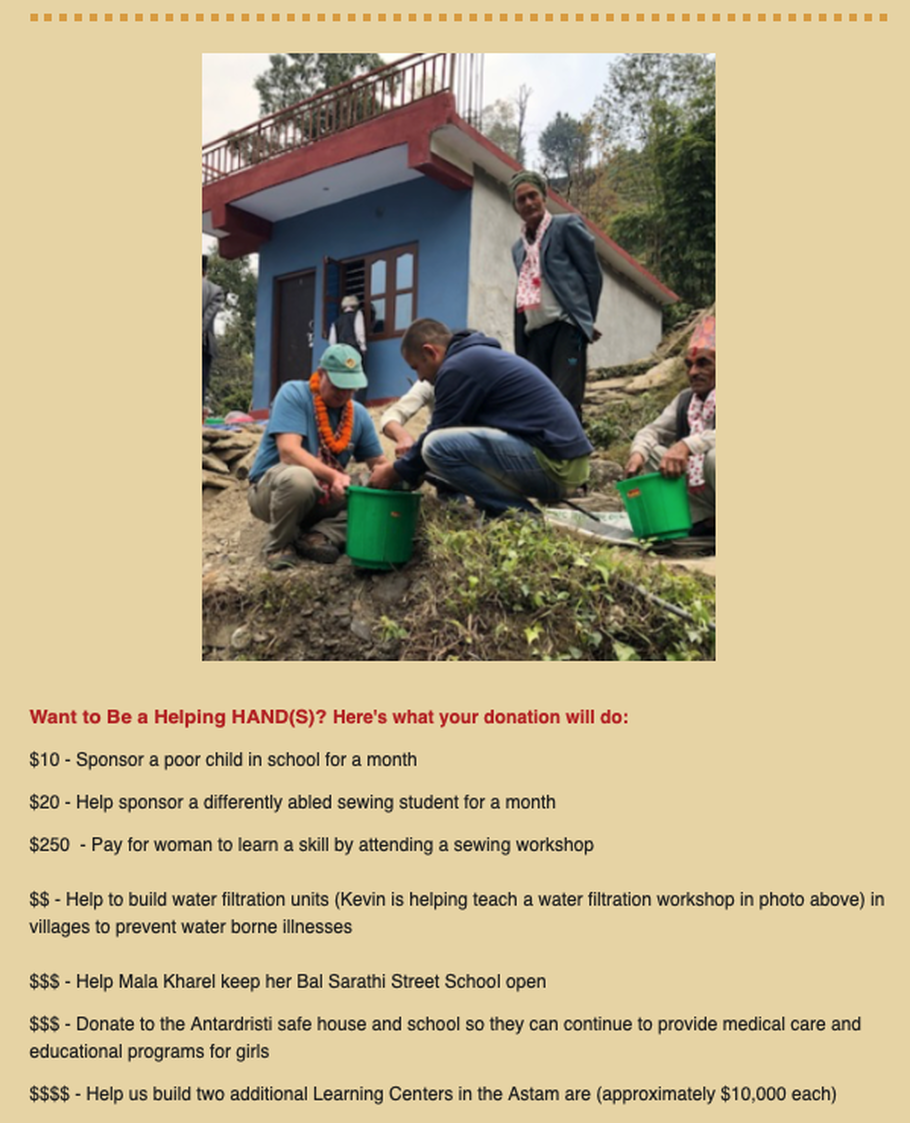WELCOME TO HANDS IN NEPAL
Delivering books to villages
Two Board members from HANDS in Nepal recently returned from taking suitcases of books, sewing machines, solar lights and medical kits to remote, rural villages of the Annapurna foothills. Since our mission is to support illiteracy in remote, rural, marginalized areas of some of the poorest corners of Nepal, we often found ourselves on foot with porters helping carrying our donations. Villagers were always waiting patiently for us, and kids turned out in the school uniforms with flower garlands to hang around our necks with lots of Namaste!
Part of our programs are helping to support two schools in the Kathmandu area that service very poor, very low-caste children, Bal Sarathi Street School and Antardristi, a school for sexually abused girls where they can get treatment, counseling, and learn coping skills.
We are always grateful your donations enable us to provide help for these important programs and precious children. A little money goes a long way in Nepal. For a $150 donation, we are able to buy a treadle sewing machine that will help a disadvantaged woman earn a living. For $20 a month, we can help keep a child in school. We carefully make decisions on how to use your donation to do the most good for the most people who need it the most. We often say we are the “little NGO that Can!” Our service has ranged from building schools, libraries and suppling school supplies, to delivering food rations during emergencies and helping villagers with medical supplies. Thank you for all your help-and please, take a look at more photos and stories at our website:
handsinnepal.org. We are a 501 (c) 3 and follow all IRS regulations. Every dollar helps us help those who would not
Two Board members from HANDS in Nepal recently returned from taking suitcases of books, sewing machines, solar lights and medical kits to remote, rural villages of the Annapurna foothills. Since our mission is to support illiteracy in remote, rural, marginalized areas of some of the poorest corners of Nepal, we often found ourselves on foot with porters helping carrying our donations. Villagers were always waiting patiently for us, and kids turned out in the school uniforms with flower garlands to hang around our necks with lots of Namaste!
Part of our programs are helping to support two schools in the Kathmandu area that service very poor, very low-caste children, Bal Sarathi Street School and Antardristi, a school for sexually abused girls where they can get treatment, counseling, and learn coping skills.
We are always grateful your donations enable us to provide help for these important programs and precious children. A little money goes a long way in Nepal. For a $150 donation, we are able to buy a treadle sewing machine that will help a disadvantaged woman earn a living. For $20 a month, we can help keep a child in school. We carefully make decisions on how to use your donation to do the most good for the most people who need it the most. We often say we are the “little NGO that Can!” Our service has ranged from building schools, libraries and suppling school supplies, to delivering food rations during emergencies and helping villagers with medical supplies. Thank you for all your help-and please, take a look at more photos and stories at our website:
handsinnepal.org. We are a 501 (c) 3 and follow all IRS regulations. Every dollar helps us help those who would not
Two Hands board members, Kevin O’Shea and Jan Sprague are in Nepal working on education projects. We are here to visit the Antardristi safe house and school, Bal Sarathi street school for children, our new Taz Grout Library, and sewing projects. We will also be giving donations to mother groups to help purchase educational materials for villages. Assisting villages with water filtration is another priority.
CONTACT US!
Email: Jan Sprague: [email protected]
Kevin O'Shea: [email protected]
Write us at: HANDS in Nepal, PO Box 738, Santa Margarita, Ca. 93453
UPS or FedEx: 22595 I. Street, Santa Margarita, Ca. 93453
Call us at: 805-801-3809 or 805-423-0120
HANDS in Nepal is a registered 501(c)3 NGO.
Our Tax ID # is 27-0777768.
Email: Jan Sprague: [email protected]
Kevin O'Shea: [email protected]
Write us at: HANDS in Nepal, PO Box 738, Santa Margarita, Ca. 93453
UPS or FedEx: 22595 I. Street, Santa Margarita, Ca. 93453
Call us at: 805-801-3809 or 805-423-0120
HANDS in Nepal is a registered 501(c)3 NGO.
Our Tax ID # is 27-0777768.

